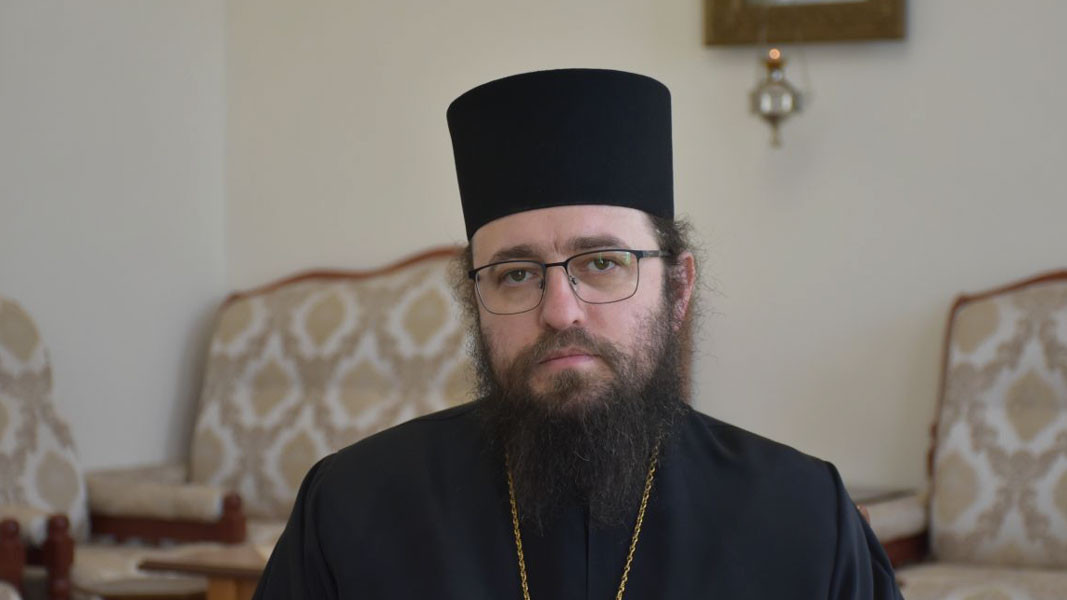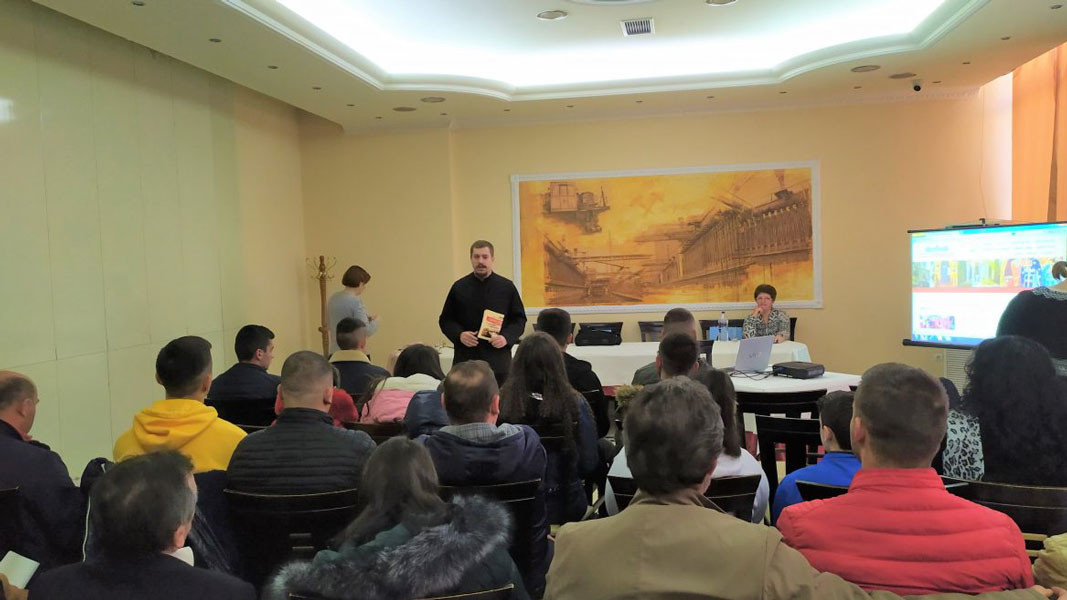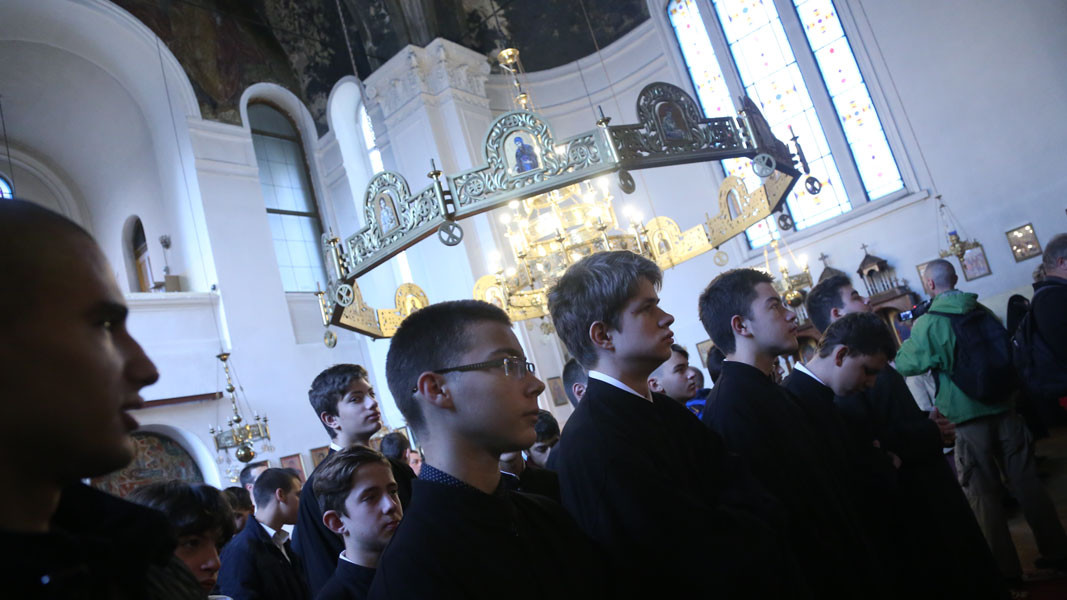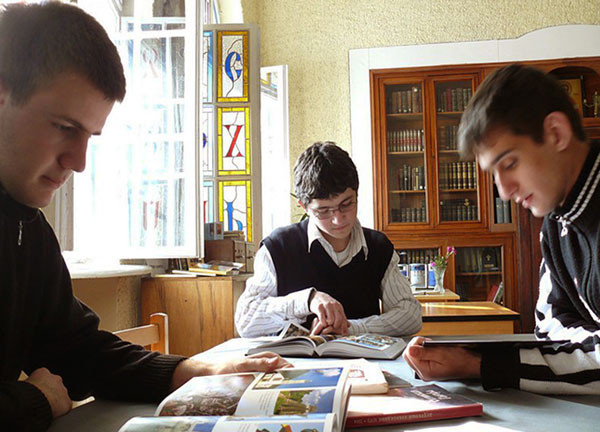Sofia’s Тheological Сeminary “Sveti Ioan Rilsk” (Saint John of Rila) and the Plovdiv-based Theological Seminary “Sts. Cyril and Methodius" are secondary theological schools in which, along with young people from all over Bulgaria, ethnic Bulgarians from Macedonia, Moldova, Ukraine and Albania are trained. The idea of accepting as their students also children from the Bulgarian diaspora was born when Bishop Sionius was rector in the period 1996-2009.
“This was in the period when I was still a student at the seminary,” says Archimandrite Pahomius, Rector of the Sofia Theological Seminary now.

“Even then there were children from the Bulgarian diaspora, mostly Bessarabian Bulgarians from Moldova. So it is a long-standing tradition for the seminary to train Bulgarians from all over the world. It is a source of pride for us to enable these people to be in close contact with their traditions, their history, their nation in both material and spiritual ways while studying at our school.”
Archimandrite Pahomius explains that the Seminary has difficulties in attracting candidates from the Bulgarian diaspora. There is no methodology yet in place to hold on-site meetings in the respective countries so the young candidates get acquainted with what they will study here and what opportunities the seminary will provide them with. The campaign is currently being implemented through children who have been or are currently students at the seminary. Returning to their homes, after graduation or during their vacations, they carry materials related to the training at the Sofia Theological Seminary.
Currently, a system has been developed in Bulgari about holding promotional campaigns about Bulgarian university education among the Bulgarian diaspora in different, but unfortunately there is no such campaign to promote Bulgarian secondary education. This year, representatives of the Sofia Theological Seminary participated in the educational forum in the town of Korca, Albania, organized annually by the Ministry of Education and Science for the recruitment of students.

What are the requirements to candidates – more from archimandrite Pahomius:
“Applicants must have a faith-based attitude, be baptized as Orthodox Christians, and have above than average grades at school. There is also an entrance exam, which is more of an interview to see that children have the desire to study at a theological school. This should not come as a surprise as our school has its peculiarities, such as regular attendance at church services, church practice, and daily life in a boarding house, which requires children to be prepared and really have an inner desire to study in this type of school. If they come here forced by a parent or relatives, they could hardly bear the rhythm of life in the seminary.”

Archimandrite Pahomius adds that any child who is underage is having a difficult time separating from his family and environment. And this is especially important for children who come from farther away because their relationship with their family is more difficult and their ability to get home is more limited. Over time, the seminarians overcome these difficulties thanks to the friendships they make with other children and the support they receive from teachers. Over the years, numerous children of Bessarabian Bulgarians from Moldova, as well as children from the Bulgarian diaspora in Albania, have been trained at the Sofia Theological Seminary.
 “The good thing is that most of them stay in Bulgaria and manage to finish also their higher education here,” says Archimandrite Pahomius. “Many of them choose different professional fields. The most important thing for us is to give them opportunities and knowledge of God, of faith, of languages, of culture and to give them support. Most of them go home, but they receive a good education in Bulgaria.”
“The good thing is that most of them stay in Bulgaria and manage to finish also their higher education here,” says Archimandrite Pahomius. “Many of them choose different professional fields. The most important thing for us is to give them opportunities and knowledge of God, of faith, of languages, of culture and to give them support. Most of them go home, but they receive a good education in Bulgaria.”
The students at the seminary receive scholarships under the general terms of the secondary education regulations in Bulgaria. They have a fellowship from the Holy Synod of the Bulgarian Orthodox Church, they live on full board, also their transportation costs when traveling to their homes and back are covered. The diplomas they receive after graduation are recognized by Bulgaria’s Ministry of Education and Science and entitle them to apply in all specialties of higher education institutions in Bulgaria and abroad. Seminarians who have graduated with above them average scores can continue their education at the Faculty of Theology of Sofia University “St. Kliment Ohridski " without an admission exam.
English Rossitsa Petcova
Photos: sofia-seminaria.org and BGNESPatriarch Daniil celebrated a divine service for the so-called Second Resurrection of Christ in the Sofia-based church of Saint Nedelya. Patriarch Daniil greets Bulgarians with “Christ is Risen” At the festive liturgy, texts from the Gospel..
Patriarch Danil of Bulgaria, Metropolitan of Sofia, greeted the faithful with the joyful words "Christ is risen!" In his Easter message, he called on Orthodox Christians to share the extraordinary joy of heaven with the world through a life of light and..
On 20 April, all Christians will celebrate the Resurrection of Christ. Against the backdrop of our divided and troubled world, Catholics, together with Orthodox Christians, Armenians and Protestants, will send a message of hope and share the joy of the..
On 20 April, all Christians will celebrate the Resurrection of Christ. Against the backdrop of our divided and troubled world, Catholics, together with..
Holy Saturday services begin on Friday evening with Vespers. The Church commemorates the burial of Christ the Saviour and His descent into hell to save the..
Patriarch Danil of Bulgaria, Metropolitan of Sofia, greeted the faithful with the joyful words "Christ is risen!" In his Easter message, he called on..

+359 2 9336 661
